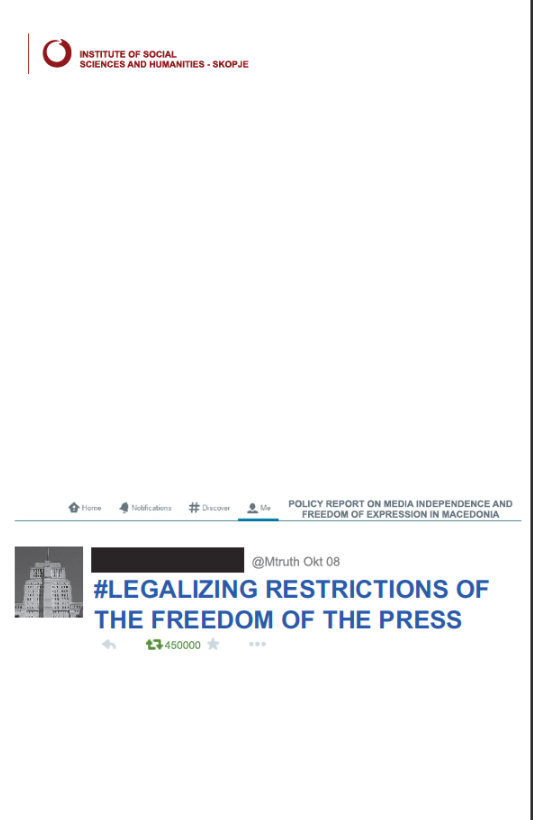
We kindly inform you that, as long as the subject affiliation of our 300.000+ articles is in progress, you might get unsufficient or no results on your third level or second level search. In this case, please broaden your search criteria.

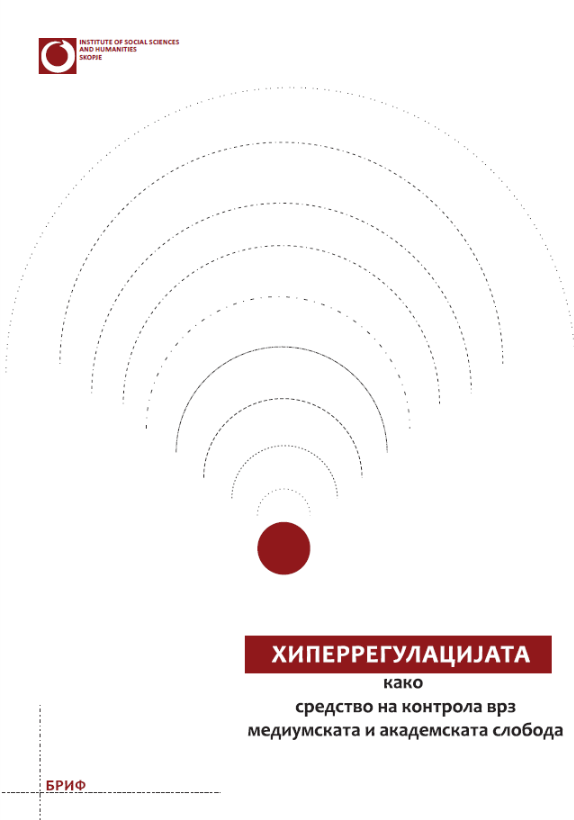
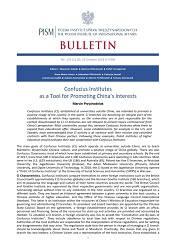
Confucius Institutes (CI), established at universities outside China, are intended to promote a positive image of the country in the world. CI branches are becoming an integral part of the establishments at which they operate, so the universities are in part responsible for the content disseminated by CI. CI branches are not allowed to present topics controversial from China’s perspective. Most universities accept this, because Confucius Institutes allow them to expand their educational offer. However, some establishments, for example in the U.S. and Sweden, have acknowledged that CI activity is at variance with their mission and cancelled contracts with their Chinese partner. Following these examples, Polish institutes of higher education should evaluate their own cooperation with Confucius Institutes.
More...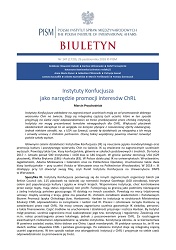
Instytuty Konfucjusza zakładane na zagranicznych uczelniach mają za cel promowanie dobrego wizerunku Chin na świecie. Stają się integralną częścią tych uczelni, które w ten sposób przyjmują na siebie część odpowiedzialności za treści przekazywane przez chińską instytucję. Instytuty nie mogą prezentować tematów niewygodnych dla ChRL. Większość placówek akademickich akceptuje to ze względu na korzyści płynące z rozszerzonej oferty edukacyjnej. Jednak niektóre ośrodki, np. z USA czy Szwecji, uznały tę działalność za niezgodną z ich misją i zerwały umowy z chińskim partnerem. Ocenę takiej współpracy powinny również rozważyć polskie szkoły wyższe.
More...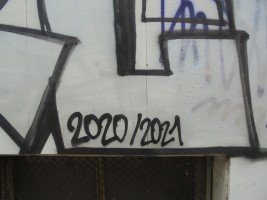
Već mesecima nameravam da napišem ovaj tekst. Odustajala sam jer nemam pozadinu u pedagogiji i ne znam dovoljno o obrazovnom sistemu i institucionalnim aranžmanima koji omogućavaju funkcionisanje škola. Odustajala sam jer mislim da je školarcima teško, ali da ni nastavnicima nije lakše, ma koliko da su požrtvovani i koliko god da vešto barataju tehnikom dok za male pare iskaču iz virtuelnih u stvarne učionice i nazad. Odustajala sam, najzad, zato što sam se potajno nadala da će božanstva u ministarstvu zaduženom za prosvetu dekretom ukinuti prijemni ispit za srednje škole ove kužne godine, ili da će roditelji dece koja završavaju osmi razred izvršiti neki tehno-ustanak, iz svojih virtuelnih stanovaučionica, uz poštovanje svih pandemijskih mera. Ali, evo prolazi april, i ništa, ni ustanka ni dobre države.
More...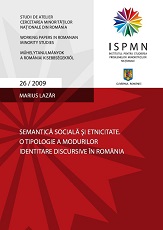
The present study redraws the map of ethnic relations in Romania on the basis of sociological surveys carried out by the Reseach Center on Inter-ethnic Relations (Centrul de Cercetare a Relaţiilor Interetnice,CCRIT) and by the Ethnocultural Diversity Resource Center (Centrul de Resurse pentru Diversitate Etnoculturală), together with the Metro Media Transilvania Institute and the Romanian Institute for Research on National Minorities (Institutul pentru Studierea Problemelor Minorităţilor Naţionale, ISPMN). The author participated in all of these surveys as either research coordinator or as a consultant; and although the aforementioned surveys had different objectives and were carried out in different contexts, they had a common denominator, i.e. they examined the interethnic climate in Romania by taking the mirror-images which the main ethnic groups (Romanians, Hungarians and the Roma) had about one another. Going beyond the descriptive level that was typical of the first attempts synthesizing the collected data, the study intends to synthesize the main attitudes and orientations of the population from Romania on the basis of ideal-typical attitudes and discourses corresponding with certain social segments. The study incorporates the longitudinal data which enable a unitary approach based on continuity, and record essential and relevant aspects for positioning the subjects in the field of inter-ethnicity.
More...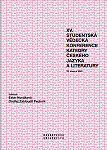
Článek se zaměřuje na vhled do nabídky jazykových kurzů ve vybraných integračních centrech v ČR, možnosti nárokové podpory pro děti a žáky se žádnou či nedostatečnou znalostí českého jazyka v mateřských, základních i středních školách a na poradenství pedagogům při práci s těmito žáky v přímé výuce češtiny jako druhého jazyka i ve výuce ostatních školních předmětů formou soupisu výukových materiálů a doporučení webových stránek, na kterých naleznou odpovědi na své otázky.
More...
Struktura uměleckého díla zahrnuje celou řadu dílčích prvků, kterými může recipient postupně proniknout, aby dosáhl plného porozumění a přijetí. Každé dílo je zcela unikátní, a proto i tento proces identifikace čtenáře či divadelního diváka je naprosto ojedinělý. Lze však nalézt určité průsečíky, které jsou pro dané dílo a recepci uměleckého díla charakteristické. Příspěvek se zaměřuje na závěrečné poznatky plynoucí z výzkumu identifikace dětských čtenářů a dětského divadelního publika. Vychází z disertačního projektu s tématem identifikace dítěte mladšího školního věku s literárním dílem a divadelním představením.
More...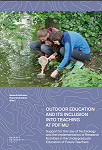
Outdoor teaching is definitely not a product of nowadays. It has appeared in the school curriculum of several subjects for more than 100 years. The presented methodology does not primarily deal with the name origin of that teaching form, and thus we define it for the purposes of the presented publication as follows (Hofmann et al., 2003, p. 7; Svobodová et al., 2019): “Outdoor education can be defined as an “integrating” term denoting various forms of education with the outdoor setting of their common unifying feature. Outdoor education can take various organisational forms, from a walk, a field excursion or field exercise to a several-day school trip or residential outdoor school. Depending on the objectives and used teaching methods the pupils can be passive listeners and observers as well as researchers actively collecting and processing information from primary and secondary sources, with the help of research methods and aids offered by the individual science disciplines.“
More...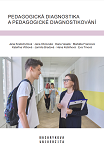
Cílem této kapitoly je seznámit se s využitím výstupů z pedagogické diagnostiky pro nastavování individuální podpory. S oporou o platnou školskou legislativu je představen systém podpůrných opatření, která pomáhají vyrovnávat žákům jejich vzdělávací možnosti.
More...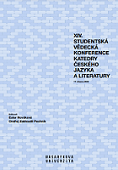
Výzkum recepce literárního díla dětským čtenářem zahrnuje množství metodologických přístupů, kterými je možné tento fenomén zkoumat. Každé dítě vyžaduje svůj specifický způsob vyjádření, jenž je pro něj vlastní a přirozený. Jedním z možných výzkumných nástrojů při výzkumu recepce dětského čtenářství je neodmyslitelně skupinová diskuze, nabízející otevřený prostor pro vyjádření. Tento nástroj přinesl řadu významných informací konkretizujících vnímání a přijetí literárního díla dětským čtenářem. Cílem příspěvku je nabídnout čtenáři dílčí výsledky výzkumu dětského čtenářství, a to na základě využité výzkumné metody skupinové diskuze. Výzkumné aktivity jsou součástí disertačního projektu autora příspěvku zaměřeného na identifikaci dítěte mladšího školního věku s literárním a divadelním dílem. Příspěvek předkládá výsledky skupinové diskuze z hodin čtení literárního díla Lewise Carrolla Za zrcadlem a co tam Alenka našla, provedeného u žáků třetí třídy základní školy.
More...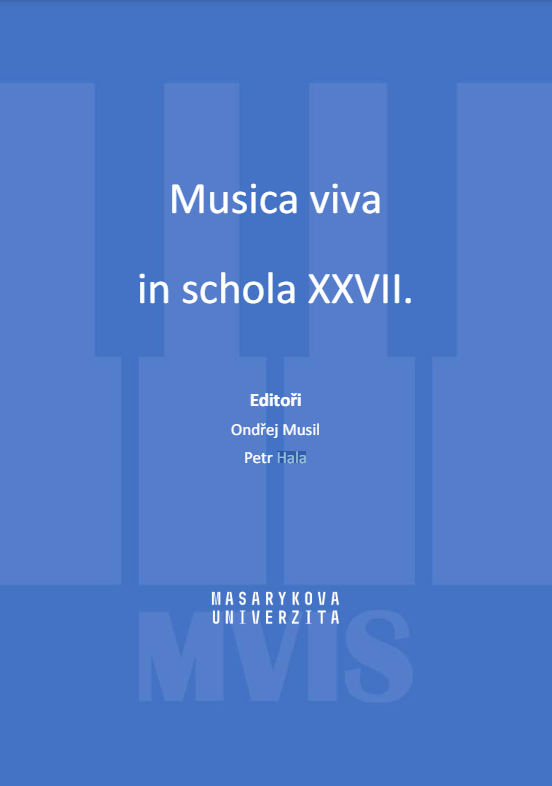
Music education has an irreplaceable position in the education of children with special educational needs. However, in the context of this target group, it is often confused with music therapy. The aim of this paper is to present to the professional public the results of a music education project in which we worked with a group of socially disadvantaged children. We chose a qualitative research design which allowed us to gain a thorough insight into the research setting. We gathered information using interviews and processed the data using grounded theory and phenomenological interpretive analysis. The results obtained point to the need for a modification of music education that would respond to the specificities of this target group. We will use the research outcomes to demonstrate the individual differences and points of contact between music education, music therapy, and music philetics. In the discussion, we will reflect on the need for thorough teacher training and highlight the untapped interdisciplinary potential of modern music education.
More...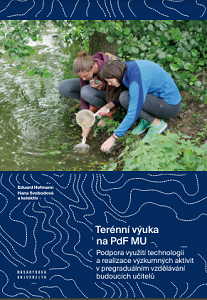
Terénní výuka není rozhodně produktem dnešní doby. Ve školních osnovách se objevuje v řadě předmětů už více než 100 let. Předkládaná metodika se však primárně nezabývá původem této výukové formy, a proto si ji pro účely předkládané publikace vymezujeme následovně (Hofmann et al., 2003, s. 7, úprava Svobodová et al., 2019)
More...
Lipnice nad Sázavou je historická obec, dříve město, v okrese Havlíčkův Brod, v Kraji Vysočina. Je položená ve výšce 580 m n. m. na dominantní krajinné vyvýšenině na pomezí středního a horního Posázaví. Obec byla založena na počátku 14. století a má bohatou historii spojenou s dominantou obce – hradem Lipnicí. Hrad byl zejména ve středověku sídlem významných šlechtických rodů a podhradní městečko bylo hospodářským zázemím hradu.
More...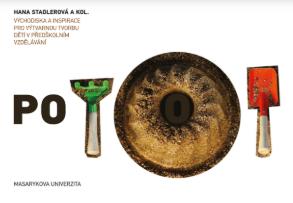
Nikdy dříve se v umění nevěnovalo tolik pozornosti dětskému projevu jako ve dvacátém století. Průkopníci moderny, jako byl například Pablo Picasso, obdivovali své kolegy, kteří si v tvorbě dokázali zachovat spontánnost a opravdovost. Picasso například ctil Henriho Rousseaua. Malíř, jehož tvorba se přímo označuje jako naivní umění, tvořil s tak živým a opravdovým zaujetím, že se bál tygra, kterého namaloval v džungli.
More...
Cizím slovem fosílie jsou označovány zkamenělé i nezkamenělé zbytky a otisky dávno vyhynulých organismů. Mnohdy se též za fosílie považují stopy po činnosti těchto organismů – otisky končetin, drobné dírky po vrtání či cestičky po lezení. „Aktuální fosílie“, jak jsme akci nazvali, pro nás výtvarníky dnes znamenají zatvrdliny po stopách současně žijících organismů na fakultě.
More...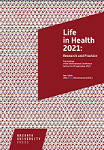
This text presents one of the steps in the dissemination process of the ‘HEPAS’ project in the Czech Republic. HEPAS (Healthy and Physically Active Schools in Europe) was funded under the Erasmus+ Programme, Key Action 2: Strategic Partnerships led by the University of Luxembourg. HEPAS Associated Partners (according to the service agreement) was to perform the activities specified in the agreement to successfully promote and implement the project results in their respective country. In the Czech Republic, the Czech Society of PE Teachers (CSPET) was the HEPAS associated partner. The objective of this paper is to point out an unpublished report elaborated by the HEPAS project team and use the data to consider the specifics of the Czech curriculum currently being revised. The report brought evidence from the last ten years of the contributions of schoolbased physical activity, physical education, and school sport on the promotion of healthenhancing physical activity. The study used a 'rapid reviewing' method, in which sources were identified and analysed using systematic reviewing techniques, but subsequent stages were adapted to facilitate flexible and practical interpretation. The authors used the results to discuss the plausibility of introducing an ‘Active Schools’ concept in the Czech curricula, in which physical education lessons designed to equip students with the prerequisite knowledge, skills, attitudes, and values supportive of a physically active lifestyle are augmented by other school-based contexts which provide the opportunity to meet the recommended guidelines for physical activity participation.
More...
Remedial Physical Education (RPE) in the context of education is a school subject focused on promoting health and developing physical literacy in children with special educational needs (SEN). The subject RPE has more than seventy-years long tradition in Czech Republic and support in legislation and the Framework Educational Program. However, despite the emphasis on the importance of supporting children with SEN, the number of schools that offer this subject is declining. For systemic change, it is extremely important to carefully analyze factors leading to this situation. These include, e.g. possibility to exempt pupils from physical education classes, organizational demands and nonenforcement of the provision of SEN, insufficient preparation of future teachers, the outdated paradigm of the field, and negative attitudes of students and parents to physical education in schools.
More...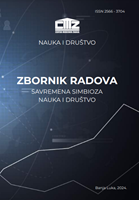
The Program for International Student Assessment (PISA) organized by the Organization for Economic Co-operation and Development (OECD), in addition to giving us an insight into the assessment of knowledge and skills of fifteen-year-olds around the world, also shows us that the countries that achieve the best results are located in different regions and parts of the world, and sometimes they have completely different cultures. The goal of this paper is to show how and in what way the education system works in South Korea, which for the last ten years has been at the very top of the most successful education systems in the world. In the paper, the authors present the structure and organization of the educational system, and their characteristics, but also shed light on the dilemma of what is actually the secret of the success of their educational system.
More...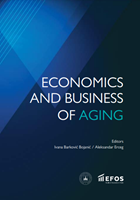
Demographic change presents a challenge for all developed countries, especially EU countries, with significant aging populations. Therefore, active aging is key. Older people must be included in society, and their participation must be considered a priority without any stigmatization and discrimination they are often exposed to. Older people need to remain active in their daily lives in their community (e.g., education and training facilities that enable active aging at work, health and care services that support healthy aging and independent living, etc.). Consequently, meaningful educational opportunities for older individuals should be a top priority. This paper addresses the critical area of lifelong learning for an aging population, focusing on the university for the third age as a distinctive and innovative model. The authors undertake a comprehensive theoretical analysis of the literature published to date on education for older people to examine the impact and effectiveness of educational programs that address the educational needs of older adults. In the applied part of the paper, the authors analyze the programs and activities of the University for the Third Age of the University of Rijeka.
More...